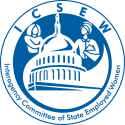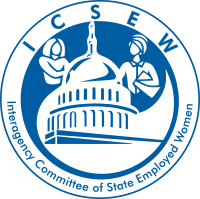Commentary: Celebrating Women’s History Month
by Rachel Friederich, ICSEW Communications Chair
March is Women’s History Month. Since 1995, US presidents have issued annual proclamations for this month, to celebrate contributions women have made in American history and recognize their achievements.
As tumultuous as the past year has been, women—in state and national government have made history.
Nationally, we saw the first woman of color become vice president– the second-highest government office in the land.
In Washington state, our Supreme Court became one of the most diverse in the nation, with the appointments of Judge Raquel Montoya-Lewis as first Native woman and Helen Whitener was the first Black woman to sit on the state’s highest court. Women have more representation in our legislature. T’wina Nobles was the first Black senator elected in Washington for more than a decade—and only the second black woman to serve in the chamber. The House also gained three new Black women: Jamila Taylor, April Berd and Kirsten Harris-Talley. (Read about them on CrossCut.) Voters also chose Marilyn Strickland as its first Black member of Congress. In another first, Laurie Jinkins became the state’s first woman and out lesbian Speaker of the House.
ICSEW Making History
The Interagency Committee of State Employed Women has made history, too. This March has marked one year since we began holding our meetings and events exclusively online. We’ve stepped up to master tools like Zoom and Facebook Live. Many of us learned new skills outside of our comfort zones. We will continue our virtual interactions with our membership—at least for the immediate future.
Though conducting business online threw us a learning curve, we’ve adapted. And the virtual world has a silver lining. Since we’ve started streaming our meetings and archiving our videos, they’ve gotten thousands of views—way more than any number of people who have attended our meetings in person. It’s given state employees who don’t work in the greater Olympia area—and may not have had the opportunity engage with ICSEW—access they likely never had before. No other time in our 58-year history has attending our meetings been so easy.
Even when we eventually start meeting again face-to-face, we will continue streaming our meetings and many of our trainings online.
ICSEW also launched its first-ever mentorship pilot program for ICSEW representatives. The pilot had about 40 participants from various state agencies. The project is coming to a close, but we’re actively working with partners and taking steps to make the pilot available for all state employees. We’ll be providing updates on our progress at future meetings and on our blog.
Making My Own History
Women’s History Month is also important to me. As a daughter of Filipino immigrants, there were lots of things my mother wasn’t allowed to do after arriving to the US after escaping a country that was on the verge of martial law in the early 1970s.
I am the first woman in my family to have certain rights and opportunities that my mother didn’t have. (Read: Nine things Women Couldn’t Do in 1971)
When my mother immigrated to the US, women weren’t allowed to keep their maiden names after marriage. (This did not occur until 1976). Women weren’t allowed to have their own bank accounts (This also did not occur until 1976.) In the early 70s women couldn’t get credit cards in their own names nor serve on a jury or attend an Ivy League school.
I couldn’t afford to attend an Ivy League, but I did attend a state college and was the first person in my family to graduate from a university and go on to a professional career.
Though we’ve made a lot of progress in achieving gender equality, we’re not there yet. Women are still underrepresented many lines of work, but especially in STEM fields and law enforcement. Men still outnumber women in Congress and there are still elected officials trying to legislate women’s rights to their own bodies.
There’s still a lack of women in senior leadership positions in the business world. And in our nation’s 200+ year history, we have yet to close the gender wage gap. The Center for American Progress lists the US gender wage gap at 82 percent (meaning women earned 82 cents to every $1 their male counterparts earn, as of 2019). However, in our state, the gender wage gap has actually widened. Recent numbers from the US Bureau of Labor Statistics, as reported by KING 5 shows that women in our state earned 81 cents for every dollar their male counterparts earned in 2014, but the number fell to 75.4 by 2019.
One of the reasons I decided to join ICSEW was for the opportunity for leadership, personal and career development trainings and to be around other strong, female professionals who were very few and far between when I was growing up. It’s given me the confidence to talk to supervisors about opportunities to advance in my career. (something I had never been taught to do) The trainings ICSEW offers have taught me to spot systemic issues that play into gender inequalities, like implicit biases and micro-aggressions. And how to advocate to put a stop these issues.
Resources
As we ease into Women’s History Month, I invite you take a look at some resources about Women’s History in the State of Washington and civic involvement.
- National Women’s Political Caucus of Washington: Contains a timeline of history of the feminist movement in Washington state, beginning in 1854.
- Washington State Historical Society’s page on the 100th anniversary of the women’s suffrage movement. Though the centennial was last year, and all of its in-person events were cancelled, the site has virtual exhibitions, curricula, and links to videos.
- Washington State Women’s Commission: Its mission is to improve the life of every woman by ensuring equitable opportunities and removing systemic barriers through engagement, advocacy, public policy, while being inclusive of diverse populations. The organization has many events, and which can be attend virtually on women’s issues.
- ICSEW’s About page gives a brief history of how the ICSEW evolved from a response to President Kennedy’s National Commission on the status of Women and its work we continue today.
I’d also invite you to attend our next meeting on March 16 to learn about what ICSEW does and to be a part of our mission of bettering the lives of all state employees through advocacy, outreach and opportunity, by advising the Governor on issues that impact state employed women. I emphasize all state employees, because issue that impact the ability of women to thrive in the workplace, will impact everyone’s ability to thrive.
It’s certainly impacted mine.


